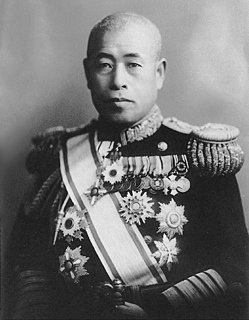A Quote by Morgan Ortagus
The United States and the D.P.R.K. will not overcome a legacy of 70 years of war and hostility on the Korean Peninsula through the course of a single Saturday.
Related Quotes
Regarding the Korean Peninsula nuclear issue, we reaffirm that we are staunchly committed to realizing the denuclearization of the peninsula and upholding the international nuclear nonproliferation system. Both sides will continue to strictly enact all UN Security Council resolutions. And at the same time, we are committed to continuing to solve the North Korean nuclear issue through dialogue and talks.
We need an effective American diplomacy that will marshall the resources of nations in the Asian Pacific Rim to put pressure on North Korea, on Kim Jong-un, to abandon his nuclear ambitions. It has to remain the policy of the United States of America, the denuclearization of the Korean peninsula, plain and simple.
I believe the number is 70% of the world's refugees since World War II have been taken in by the United States. Every year, year in, year out, the United States admits more legal immigrants than the rest of the world combined. The United States has granted amnesty before to three million illegals and appears prepared to do it again.
When I grew up, in Taiwan, the Korean War was seen as a good war, where America protected Asia. It was sort of an extension of World War II. And it was, of course, the peak of the Cold War. People in Taiwan were generally proAmerican. The Korean War made Japan. And then the Vietnam War made Taiwan. There is some truth to that.
Iran did not talk to the United States for 35 years. And now we are talking. And I believe these talks are useful. But they haven't produced the intended results. We have not seen an end to the hostility that has been exhibited in the United States against Iran. And I believe it is important that we see some of that.
The right course is for the Palestinians and the Israelis to sit down at the table together. The Palestinians need to recognize that the course to the two-state solution is not through the United Nations or through the United States or through anyone else, but through a face to face series of negotiations with the Israelis.
As the United States begins a new chapter in our relationship with Cuba, we hope it will create an environment that improves the lives of the Cuban people, not because it is imposed by us, the United States, but through the talent and ingenuity and aspirations, and the conversations among Cubans from all walks of life so they can decide what the best course is for their prosperity.



































